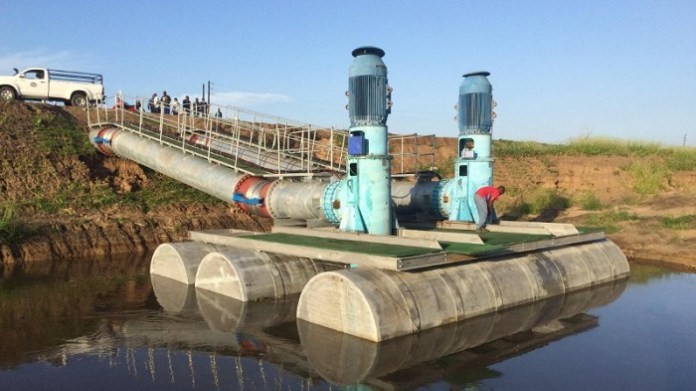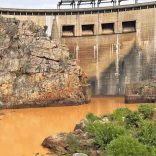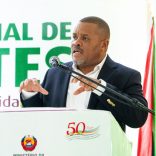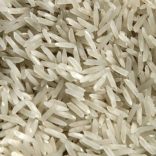Mozambique: Pollution forces fishermen to stop fishing in Manica - AIM report
Government negotiates more funds for irrigation

MASA
The Ministry of Agriculture and Food Security is negotiating an US$80 million loan from the World Bank for the implementation of the Irrigation and Market Access Project for Small Scale Farmers (IRRIGA).
The project will cover over seven million hectares in Manica, Sofala and Zambézia
The city of Quelimane last week hosted a public consultation which brought together the government, the private sector and various civil society stakeholders to discuss and flesh out the proposal.
António Tcheco, a representative of the Small Scale Irrigation Project in Zambézia, told Notícias that the aim of the programme was to expand the irrigated area, introduce technologies to increase productivity and develop links between input providers and producers, as well as access to markets.
Currently, the Agriculture and Food Security sector is implementing a Small Scale Irrigation Project (PROIRRI) in the central region of the country, covering around 3,000 hectares.
To these will be added the 7,000 hectares of the project still in prospect, and expected to be implemented between 2018-2022. It is believed that the project will contribute decisively to the establishment and strengthening of irrigation associations and the improvement of service provision and market links.
The Quelimane meeting brought together various stakeholders in the agricultural production chain and was intended to enrich the policy framework and safeguard environmental and social management, reducing the negative impacts associated with the project.
António Tcheco said that the project foresaw resettlement issues, dealing with sacred sites, and mechanisms to do with the mobility of people, property, family assets and even of the state itself.
At the Zambézia province level, the initiative will cover 14 districts with agro-ecological potential for the production of rice, vegetables and fruit trees under a contract regime. In total, more than 4,000 producers will be involved, with the aim being to promote sustainable development while avoiding adverse environmental and socio-cultural impacts.
IRRIGA will be the continuation of PROIRRI, which is also financed by the World Bank but which is expected to end this year.
The experiences derived from the project will be used to improve the next intervention so that the results are even better, especially in helping small subsistence producers transform












Leave a Reply
Be the First to Comment!
You must be logged in to post a comment.
You must be logged in to post a comment.